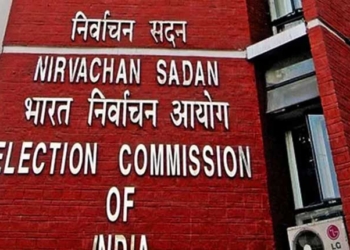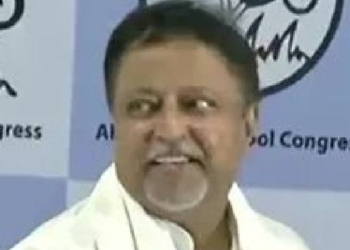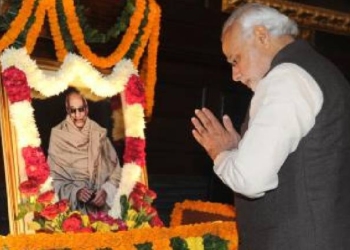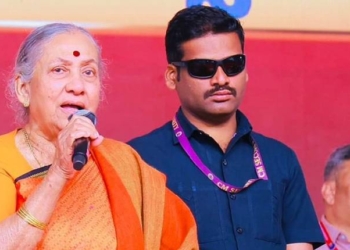New Delhi: Much like monsoon floods had routinely triggered civic alarms in urban India, the spectre of Rohingya and Bangladeshi nationals casting votes illicitly had re-emerged with political intensity each time the nation approached a major election in any state.
For example, in the run-up to the February 2025 Delhi Assembly elections, the issue had captured the attention of the administrative and political machinery.
In the preceding weeks, enforcement agencies, particularly the Delhi Police and the District Foreigner Cell, had to intensify operations targeting undocumented immigrants across various neighbourhoods. These units conducted door-to-door verifications, inspected documents, and interrogated individuals suspected of illegal residency.
The sweep had led to the identification of 175 individuals believed to be residing unlawfully in the national capital.
More significantly, 16 Bangladeshi nationals had been deported during December following confirmation of their illegal status.
Investigators had also uncovered a digital forgery racket that had “weaponised” India’s identity authentication infrastructure.
Operatives had used a fraudulent website to produce counterfeit birth certificates, which subsequently facilitated the issuance of Aadhaar cards and, by extension, voter IDs (identity cards). This network had exposed a systematic exploitation of institutional gaps. It had prioritised minors, exploiting the relatively lenient verification norms for those under 18 years of age. These illegitimately obtained Aadhaar credentials had then served as anchor documents to infiltrate electoral rolls.
The individuals arrested included licensed Aadhaar operators and facilitators who had managed the digital transactions through platforms and overseen the distribution of fabricated identity materials.
Recently, in a sweeping voter list audit under its Special Intensive Revision drive in Bihar, the Election Commission of India found that over 52 lakh voters in Bihar were either deceased, had permanently relocated, or were registered in multiple places.
Based on early results from the ongoing Special Intensive Revision of the state’s electoral rolls as of June 24, Bihar had 7.89 crore voters.
The Commission has found 18.66 lakh dead entries, 26.01 lakh shifted voters, 7.5 lakh duplicates, and 11,484 untraceable individuals, amounting to 6.62 per cent of the electorate.
Nearly one lakh booth-level officers, along with four lakh volunteers and 1.5 lakh agents from 12 political parties, were mobilised to conduct the sweeping voter verification exercise.
While these developments have immediate legal and electoral implications, their deeper significance lies in the challenge they pose to the sanctity of India’s voting system.
The ability to vote in a democratic republic is both a right and a responsibility tied to citizenship. When foreign nationals gain access to this system through forgery or political negligence, it erodes not only the legitimacy of elections but also the integrity of governance. Parliamentary responses from prior years underscore the scale of the problem.
In December 2017, the government responded to Rajya Sabha (Upper House) “Unstarred” (non-listed) Question No. 534 with an estimate of over 40,000 illegal Rohingya immigrants residing in India, primarily across states like Jammu and Kashmir, Telangana, Delhi, and Uttar Pradesh.
The response acknowledged that these immigrants had entered the country without valid travel documents and were therefore classified as illegal migrants under the Citizenship Act, 1955. It also clarified that India, not being a signatory to the 1951 UN Refugee Convention or its 1967 Protocol, does not extend formal refugee protections to Rohingyas, despite its traditionally generous humanitarian stance.
In a similar vein, a Parliamentary reply to Question No. 55 raised in Rajya Sabha during the November 2016 session estimated the presence of approximately 20 million illegal Bangladeshi migrants in India. Again, the clandestine nature of their entry made exact figures difficult to ascertain.
The powers of identification, detention, and deportation of such migrants have been delegated to states under the Foreigners Act, 1946, and deportation is described as a continuous process. Together, these numbers paint a troubling picture – sordid indeed! When scaled against India’s vast electoral rolls, even a small percentage of illegal inclusions can amount to hundreds of thousands of votes, eventually contaminate the electoral result.
Electoral margins in urban constituencies, where migrant populations often concentrate, are frequently slim, making the influence of illicit voters potentially decisive. Political parties have accused each other of either condoning or enabling such inclusions for demographic or electoral advantage, fuelling a bitter contest over legitimacy and governance.
The ECI, conscious of these threats, has initiated Special Intensive Revisions in high-risk states like Bihar, where officials reportedly found a sizable number of voters with suspected origins in Nepal, Bangladesh, and Myanmar.
However, such revisions cannot remain episodic or selective. What is required is a comprehensive, nationwide voter list audit that integrates intelligence inputs, biometric verifications, and inter-agency coordination.
The revision must detect and delete illegal entries and also fortify the procedural safeguards to prevent future infiltrations. Rigorous cross-referencing with Aadhaar, National Population Register, and law enforcement records should become standard practice.
The consequences of failing to act decisively are manifold. On a practical level, it leads to distorted electoral outcomes and misrepresentation in legislatures. On a philosophical level, it compromises the idea of citizenship and cheapens the democratic compact between the state and its people.
And on a security level, the unchecked presence of undocumented individuals, some potentially linked to insurgent activity or radical networks, poses risks that extend beyond the ballot box. India’s democratic resilience depends not only on free and fair elections but also on the authenticity of the citizenry that participates in them.
Voter list revision, in this context, is not a clerical necessity; it is a constitutional duty. The architecture of Indian democracy, vast and complex as it is, cannot afford to be built on compromised foundations. With elections looming, the time to clean the rolls and reclaim the integrity of the vote is now.
(IANS)
















